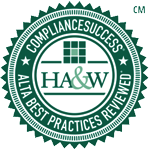Commonly Used Terms
Below are terms commonly used in real estate transactions and processes.
Attorney - In Georgia, closing a real estate transaction constitutes the practice of law and therefore requires the presence of a licensed attorney. The role of the closing attorney is to examine the title to the property, prepare the closing documents, perform the closing, collect and disburse funds, and record the Deed, Mortgage, and other documents at the County office.
Certified Funds - Georgia law requires that “good funds” be used in real estate transactions, which means that all monies must be immediately collected. This means anyone who brings money to a closing, whether the buyer, seller, or mortgage lender, must provide a certified check or have their funds wired to our escrow account prior to closing.
Closing - The closing is the consummation of the agreement between the parties to a real estate transaction.
Closing Disclosure - A Closing Disclosure is a five-page form that provides final details about the mortgage loan you have selected. It includes the loan terms, your projected monthly payments, and how much you will pay in fees and other costs to get your mortgage (closing costs).
Contract - The agreement whereby the buyer has agreed to purchase and the seller has agreed to sell the property. The Contract contains all the terms relevant to the transaction: sales price, amount of Earnest Money, division of closing costs between buyer and seller, Closing date, and any items (such as repairs) to be completed prior to Closing.
Deed - The document that transfers ownership of the property from the seller to the buyer. It is recorded at the County office and becomes a link in the chain of title. There are three main ways to hold title: as a sole owner, as tenants in common, and as joint tenants with rights of survivorship. When two or more people are the owners of property, it’s usually as tenants in common, which means that each person may dispose of his or her interest in the property as he or she sees fit, without the permission of the other party. In other words, if John and Mary are tenants in common, John could sell his half to a third party or could leave his half in his will to whomever he chooses, without Mary’s consent. On the other hand, if title is held as joint tenants with rights of survivorship, the signature of both John and Mary is required for John to transfer his ownership interest in the property. Also, upon John’s death, his half of the property would not pass through his probate estate, but would pass directly to Mary, despite any directions to the contrary in John’s will.
Deed Stamps - Also known as intangibles taxes or transfer taxes. When you sell property in Georgia, you must pay a transfer tax, a portion of which is allocated to the County where the property is located, and a portion of which is allocated to the State of Georgia. The transfer tax is calculated at $1.00 per thousand dollars of the sales price. Thus, a sales price of $100,000 will transfer taxes of $100. There is also a tax when you take out a long term loan secured by real property. This is called the intangibles tax. The intangibles tax is calculated at $3.00 per thousand dollars of the loan amount. Thus, a loan amount of $100,000 will generate intangibles taxes in the amount of $300. Your contract will determine which party is responsible for the payment of the transfer tax. The buyer is typically responsible for paying any intangibles taxes.
Earnest Money - The money paid by the buyer at the signing of the contract to hold the property. This is generally held by a real estate agent or the seller, if no agent is involved, and will be applied as a credit against the sales price at closing.
Escrow Account - An account (usually required by the lender), administered by the buyer’s lender, used to pay the buyer’s property taxes, hazard insurance, and private mortgage insurance (PMI), if any. In other words, if the lender has required the establishment of an escrow account, the buyer’s monthly payment will include not only the loan payment, but also 1/12 of the annual property taxes, 1/12 of the annual hazard insurance premium, and the monthly PMI premium. When the tax and insurance bills become due each year, the lender will pay these amounts from the escrow account.
Hazard Insurance - Also known as homeowner’s insurance. This is the insurance covering your home against liability and loss due to damage. Lenders require such insurance and evidence of your insurance is required prior to closing. You may elect to pay the premium directly to your agent before closing, or we will collect it from you at closing.
Home Inspection - A report prepared by a licensed home inspector reviewing the home’s heating and air conditioning systems, plumbing and electrical systems, roof, attic, visible insulation, walls, ceilings, floors, windows, doors, foundation, basement/crawl space, and basic structure. Your contract will determine whether an inspection is allowed, who will pay for it, and whether the seller is obligated to repair any defects uncovered in the inspection.
Homeowners’ Association Dues - Many homes are located in a subdivision or planned unit development with mandatory homeowners’ association dues for the upkeep and maintenance of the neighborhood amenities. You will be required to pay at closing the annual dues or a pro-rated portion thereof.
Promissory Note - The agreement between the buyer and the lender outlining the terms of the mortgage loan. This document will contain important terms such as the loan amount, interest rate, term of the loan, payment amount and due dates, pre-payment penalties, and late charges.
Property Taxes - Due annually on every piece of property in Georgia. The tax bills are normally issued in October and are due on or before December 31st of each year. If the tax bill has been issued at the time of closing, we will collect the portion due from the seller and the buyer on a pro-rated basis, and we will pay the tax collector. If the tax bill has not been issued at the time of closing, the buyer will receive a credit from the seller for the portion of the year that the seller owned the property. In Georgia, a homeowner is entitled to a discounted tax rate on his or her primary residence. The rate is 4%, as opposed to 6% collected for second homes, commercial property, and investment property. Additionally, residents over age 65 may apply with their County offices for a further discount known as a homestead exemption.
Mortgage - A document recorded along with the Deed at the County office, evidencing the lender’s security interest in the property. The mortgage is the document indicating that the property is the collateral for the loan. Everyone whose name appears on the Deed as an owner of the property must be present to sign the mortgage document at closing.
Security Deed or Deed to Secure Debt - A document recorded along with the Deed at the County office, evidencing the lender’s security interest in the property. The security deed is the document indicating that the property is the collateral for the loan. Everyone whose name appears on the Deed as an owner of the property must be present to sign the security deed at closing.
Settlement Statement - This is the document showing the itemization of all closing costs paid or received by the buyer, seller, and lender. We prepare this document based on instructions provided by the lender and according to the terms of the contract, and use this document to provide the buyer and seller with their “bottom lines.”
Survey - Also known as a plat. This is the overhead drawing of the property, made by a licensed surveyor or engineer, based on the legal description of the property and specific measurements made on the property.
Termite Letter - Also known as a CL-100 (in the case of an existing home) or a soil treatment letter (in the case of new construction). Most lenders require that a termite inspection be performed by a licensed pest control expert and a report prepared prior to closing. The contract should specify whether the cost of this inspection and report is paid by the seller or buyer. Should the report indicate problems in the house, the lender may require further inspections or repairs.
Title Examination - This is an examination of the public records of the county in which the property is located. The title examiner will check the records by reviewing the history (or chain of title) of the property to insure the seller actually owns the property and to see if any mortgages or liens have been filed against the property which must be paid off or satisfied at closing.
Title Insurance - A form of insurance that protects various ownership interests in the property. There are two forms of title insurance—lender’s title insurance and owner’s title insurance. Lenders typically require buyers to purchase enough lender’s title insurance to protect the lender’s interest in the property. At closing, Buyers may choose to purchase owner’s title insurance, which is a policy covering their own interests in the property. No title examination can guarantee that a title is absolutely free of defects. Hidden defects, such as a forgery in the chain of title, a mistake in the public records, and an execution by an incompetent grantor, are difficult, if not impossible, to detect. Claims against title, even when they are without merit, can involve lengthy and expensive litigation. If a loss claim is raised against an insured property, the title insurance company will not only compensate for any valid claims, but will also pay for legal fees and court costs to defend title.Because title insurance is a one-time fee, based on the sales price of the property, it is a very cost-effective means of protecting your ownership rights. In effect, you are hiring an attorney to defend your ownership rights against any hidden defects in the chain of title. Therefore, we strongly encourage buyers to purchase enough insurance to protect their ownership interests, because our home is our most valuable investment.

Your Trusted
Real Estate Partners
Based on our solid reputation we have developed with Metro Atlanta’s highest producing agents, lenders, and builders, Parkway Law Group is your trusted legal partner for all of your closing needs.
Lenders & Real Estate Agents, email us at title@parkwaytitle.com to submit title orders, new contracts, GAR F511s for signature, or to request wiring instructions.
For general questions about our firm, please contact Amanda Gordon.
Navigation
Contact Us
Headquarters
1755 North Brown Road
Suite 150
Lawrenceville, GA 30043
Parkway Law Group, LLC – Privacy



